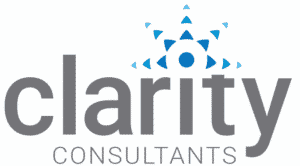[feat-img-left]
These days, it’s not your resume that’s the focus of an interview—it’s you. But not your suit, or your polished shoes, or your perfectly manicured hands. Employers want to know what kind of temperament you display at work, how you handle stress, whether you’re optimistic or pessimistic, and if you can empathize and get along with others.
In fact, companies are beginning to organize themselves around these “soft skills.” That’s because research shows that organizations made up of compassionate, optimistic thinkers are more successful than those that simply pay attention to the bottom line.
 The soft skills needed to satisfy all four realms include self-awareness, healthy expression, reasoning, and self-restraint. You won’t find any of these on a potential employee’s CV, but they’re all essential in the workplace nonetheless.
The soft skills needed to satisfy all four realms include self-awareness, healthy expression, reasoning, and self-restraint. You won’t find any of these on a potential employee’s CV, but they’re all essential in the workplace nonetheless.
 But what about in the workplace, with regular adults? The research offers a hesitant “Yes.” This hesitance stems from the fact that while good coaching programs do work, bad coaching programs exist—and it’s hard to tell the difference between the two. To further complicate the issue, EI is really hard to measure. And just to throw a final wrench into things, some people are just more “trainable” than others.
But what about in the workplace, with regular adults? The research offers a hesitant “Yes.” This hesitance stems from the fact that while good coaching programs do work, bad coaching programs exist—and it’s hard to tell the difference between the two. To further complicate the issue, EI is really hard to measure. And just to throw a final wrench into things, some people are just more “trainable” than others.
What are soft skills?
“Hard skills” are the teachable proficiencies that enable one to perform the task he or she is assigned: reading, writing, math, and typing are all examples. Soft skills, on the other hand, are more nuanced. They’re the behavior and personality traits that enable you to get along with others, be flexible in your thinking, come up with creative solutions, and maintain steadiness in the face of stress. Some research indicates that while hard skills are still a necessary part of performing adequate work, soft skills are more likely to predict success in life. Which makes sense—the ability to form social networks, apply critical thinking to problems, and keep an optimistic attitude have far-reaching benefits that continue long after you’ve left the office for the day.How do soft skills relate to emotional intelligence?
Emotional intelligence (EI), a concept made popular by psychologist and author Daniel Goleman, is the ability to recognize and respond appropriately to the emotions of one’s self and others. It may sound elementary, but it’s not: maintaining composure in the middle of enormous stress, recognizing when you’re reacting emotionally versus rationally, and navigating complex social networks in business are not easy to do. In fact, studies show that only half of the U.S. population has an adequate level of emotional intelligence. That’s unfortunate, because there are some serious benefits to having above-average EI, including more effective leadership skills, better job performance, and greater mental health. The soft skills needed to satisfy all four realms include self-awareness, healthy expression, reasoning, and self-restraint. You won’t find any of these on a potential employee’s CV, but they’re all essential in the workplace nonetheless.
The soft skills needed to satisfy all four realms include self-awareness, healthy expression, reasoning, and self-restraint. You won’t find any of these on a potential employee’s CV, but they’re all essential in the workplace nonetheless.
Can EI really be taught?
A growing number of studies indicate that EI can be taught to young children and college students through a specialized curriculum that focuses on emotional regulation, self-awareness, and restraint. But what about in the workplace, with regular adults? The research offers a hesitant “Yes.” This hesitance stems from the fact that while good coaching programs do work, bad coaching programs exist—and it’s hard to tell the difference between the two. To further complicate the issue, EI is really hard to measure. And just to throw a final wrench into things, some people are just more “trainable” than others.
But what about in the workplace, with regular adults? The research offers a hesitant “Yes.” This hesitance stems from the fact that while good coaching programs do work, bad coaching programs exist—and it’s hard to tell the difference between the two. To further complicate the issue, EI is really hard to measure. And just to throw a final wrench into things, some people are just more “trainable” than others.
